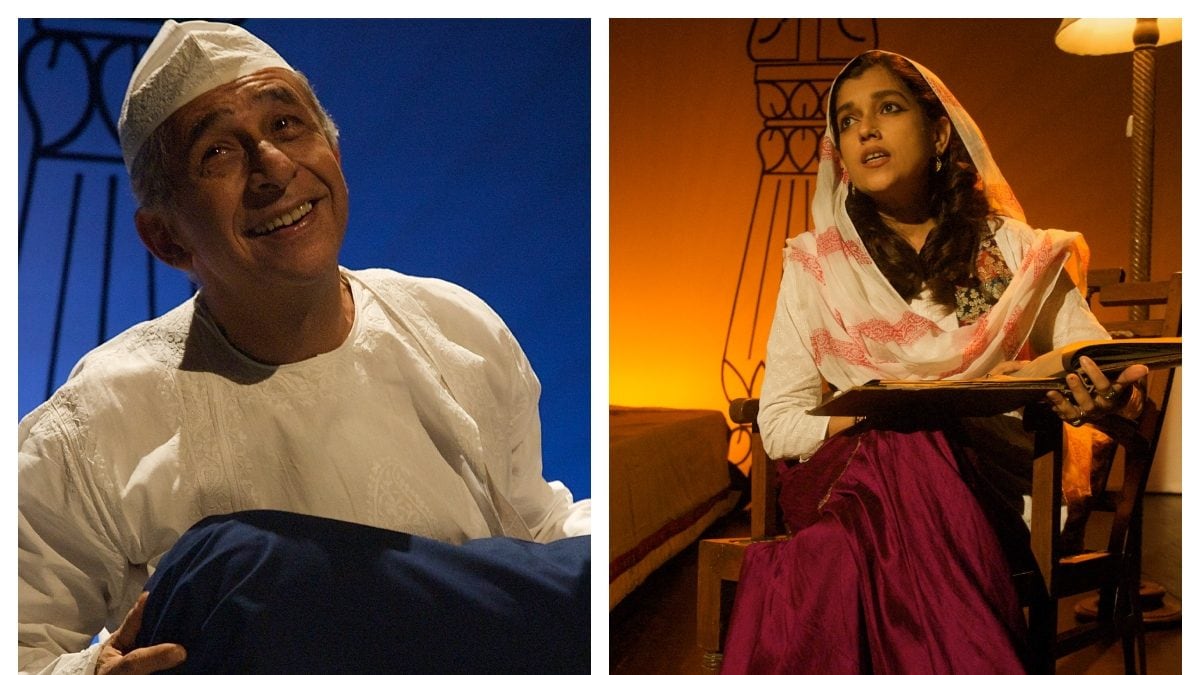Delhi Theatre Festival Kicks Off With Naseeruddin Shah’s Ismat Apa Ke Naam

The three stories are told perhaps exactly the same way Ispat Apa would have wanted it to be told.
Directed by Naseeruddin Shah himself, the show is divided into three parts, three very fitting reading and acts of Ismat Apa’s gripping tales.
Delhi Theatre Festival is back after a long-drawn hiatus of 3 years and Naseeruddin Shah’s Ismat Apa Ke Naam serves as the best start for it. If art is to disturb the comfortable then this play which stands somewhere in the threshold of one-act plays and a reading, reaches all the limits. It is raw and extremely poignant.
Mr. Shah right from the very first interaction with the audience makes it clear that this is not supposed to be a smooth ride. He starts by talking about the controversies that hover around Ismat Chugtai’s name, the biggest of them being the one that came upon her for her work ‘Lihaaf.’ A rather uncomfortably perfect introduction to what the show held, one could say.
Directed by Naseeruddin Shah himself, the show is divided into three parts, three very fitting reading and acts of Ismat Apa’s gripping tales. Heeba Shah starts the trail with the extraordinary telling of the story ‘Chui Mui’ followed by Ratna Pathak Shah’s impeccable narration of ‘Mughal Baccha’. Naseer Sahab ends the play with one of Chugtai’s most popular stories, ‘Gharwali.’ All the performances make you think and make you feel things that you probably have been sheltering yourself from.
The three stories are told perhaps exactly the same way Ispat Apa would have wanted it to be told and Naseeruddin Shah corroborates the same idea. Shah family justifies the stories they picked up for themselves to prove the relevancy and the magnanimity of Chugtai’s thoughts and words with their brilliant performances.
Vishal Bharadwaj’s music and Rekha Bharadwaj’s song with a hint of quirk and melancholy enmeshed into one is simply the cherry on the cake.

Atul Tiwari is a seasoned journalist at Mumbai Times, specializing in city news, culture, and human-interest stories. With a knack for uncovering compelling narratives, Atul brings Mumbai’s vibrant spirit to life through his writing.






